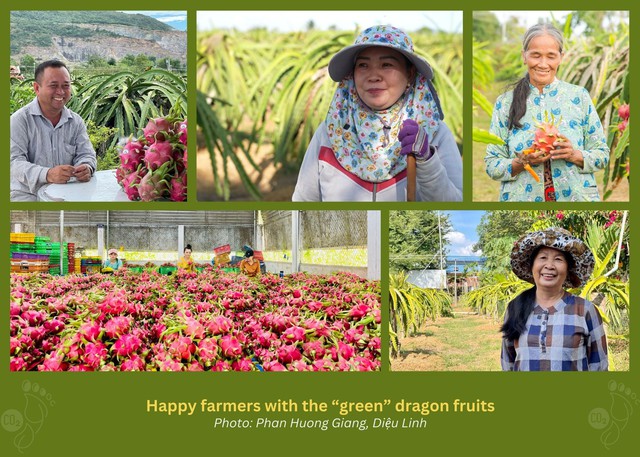UNDP helps promote sustainable dragon fruit farming in Binh Thuan
VGP - A workshop, themed "From Farm to Table: Sustainable and Green Dragon Fruit in Binh Thuan", took place in Ha Noi on January 29.

The event, co-organized by the United Nations Development Program (UNDP) and the Ministry of Agriculture and Rural Development (MARD), illustrated an innovative approach to embracing green agriculture while adapting to climate change of the agriculture production.
The event showed commendable results of a three-year project entitled "Accelerating Private Sector Engagement in Climate-Resilient and Low-Emission Investment in Implementing Viet Nam's Nationally Determined Contributions for Agriculture Sector" implemented by UNDP, MARD, and provinces of Binh Thuan and Bac Lieu.
The project focused turning the dragon fruit supply chains in Binh Thuan and shrimp in Bac Lieu into models of green agriculture, aiming to make contribution to the achievement of the Viet Nam's Nationally Determined Contributions (NDC).
The project helped to improve the lives and livelihoods of around 5,000 local farmers by introducing them to green production practices. By switching to energy-efficient LED bulbs and water-saving irrigation systems in their dragon farms, they could cut carbon emission by 68 percent and save energy by 50 percent.
Moreover, installing rooftop solar-powered irrigation systems and other water-saving technologies has led to a 42 percent drop in water consumption, saving each farm at least VND 600,000 per ha (US$25 per ha).
The farmers and cooperatives play important roles in implementing climate-resilient agriculture and green business development, said Ms. Ramla Khalidi, UNDP Resident Representative in Viet Nam.
Building on the experience in Binh Thuan, UNDP will be happy to work with MARD to devise a National Plan for Sustainable and Low-carbon Dragon fruit. The Plan aims to promote sustainable and low-carbon production, adopting circularity principles and leveraging sustainable finance for scaling up best practice, she added.
The project introduced an innovative e-traceability system, offering instant information about the origin, quality certification, and carbon footprint of each dragon fruit. This system has been applied for 269 hectares of Global G.A.P certified farms, enhancing transparency and meeting international market requirements.
The collaboration between UNDP, MARD, and Binh Thuan represents a pioneering model for sustainable agricultural development. This initiative is a source of inspiration and guidance for other regions aspiring to adopt sustainable and low-carbon agricultural practices./.
